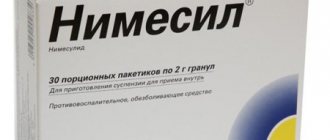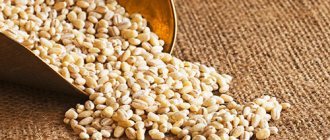Lactation is a special time in a woman’s life. A weakened immune system often leads to poor health. Antiviral drugs during breastfeeding are sometimes a necessity, because if the disease is not defeated in time, the young mother will not be able to devote all her time to the baby.
In case of complications, they will have to separate for an indefinite period, which can be very stressful for a newborn. A progressive viral infection can pose a danger to the baby.
Therefore, at the first suspicion of the onset of an acute respiratory disease or any other disease, you must consult a doctor who can select antiviral drugs for a nursing mother. Doing this on your own is difficult. Once in the mother's body, the active components of the medications penetrate into the milk. Chemicals can affect its taste and volume. But the biggest danger lies in the fact that certain drugs in the medications negatively affect the health of infants.
The body of newborns in the first months of life is not yet strong. Even simple foods eaten by a young mother can lead to allergies or severe damage to certain organs. Medicines can cause hormonal imbalances in a child and affect the functions of the digestive tract, nervous and cardiovascular systems. Therefore, mothers caring for their children should use only those products during the lactation period that are approved for breastfeeding.
Antiviral drugs for nursing mothers: which ones are allowed during lactation
13.05.2018 | 23697
The body of a nursing mother is subjected to considerable stress, and decreased immunity is far from uncommon. In moments of weakness, a woman’s susceptibility to viral infections increases.
How to deal with them and not harm the baby? Which antiviral drugs can be used during breastfeeding (BF), and which ones should be avoided? What are homeopathic antiviral remedies and why should you not use them, especially during lactation?
Viral diseases
The virus is a non-cellular infectious agent. It can only reproduce inside living cells. Viruses infect all types of organisms: from animals and plants to bacteria (viruses that infect bacteria are called bacteriophages).
Viral diseases are infectious diseases caused by the activity of viruses. The most common type of viral diseases is the so-called. cold.
Colds in non-medical sources are called a list of several diseases:
- Flu.
- Acute respiratory viral infection (ARVI).
- Pharyngitis, Nasopharyngitis.
- Laryngitis.
- Herpes.
The occurrence of a cold is not directly related to hypothermia. Hypothermia does not cause infection, but increases susceptibility to infection and makes infection easier.
Antiviral drugs are medications that are used to treat and prevent viral infections. According to medical publications, there are few medications that have been clinically proven to be effective. These are the drugs:
- Against herpes.
- Against the flu.
- Against retrovirus.
- Extended spectrum of action: Interferons, Ribavirin, Lamivudine.
The principle of action of antiviral drugs is of two types: the first type stimulates the immune system to destroy viruses, and the second type attacks viruses directly.
List of approved drugs during breastfeeding
The list of approved antiviral drugs during lactation is small. Antiviral drugs for hepatitis B are determined only by the attending physician. During their use, it is even possible to stop breastfeeding in order to avoid negative consequences for the child.
Acyclovir
An antiviral drug that helps with herpes simplex. The active substance is acyclovir. Available in the form of a 5% cream in a 10 g tube. Directions for use for nursing mothers: apply the cream to the affected skin 4 times a day. The duration of treatment is 5-10 days. Acyclovir cream can be used during breastfeeding.
Zovirax ®
A drug similar in composition to acyclovir. Acyclovir and Zovirax contain the same active ingredient, while Zovirax is 10 times more expensive. Judging by the reviews of patients, there is no difference in the effect of the drugs - both effectively cope with herpes.
Oxolinum
Oxolin prevents viral diseases transmitted by airborne droplets and prevents the reproduction of viruses in cells.
Is it possible to use oxolinic ointment during lactation? A viral infection is dangerous not only for the mother, but also for the baby. The harm to a baby's health from viruses is much greater than the possible side effects from using oxoline.
However, oxolinic ointment must be used with caution when breastfeeding, as directed and under the supervision of a physician.
The active ingredient of the drug is oxolin. Available in:
- nasal ointment 0.25% in a tube 10 g;
- ointments for external use 3% in a tube of 10 g.
Used to prevent influenza, viral skin diseases and viral rhinitis. Helps with herpes simplex, herpes zoster, adenoviruses and infectious wart viruses. Directions for use for nursing mothers:
- for the prevention of influenza - every day during an outbreak of influenza, 2 times a day, lubricate the nasal mucosa with nasal ointment 0.25%;
- for a viral runny nose (rhinitis) - daily for 3 days, lubricate the nasal mucosa 2 times a day with nasal ointment 0.25%;
- for herpes, use 3% ointment - apply to the damaged area of skin up to 3 times a day.
Tamiflu ®
A prescription drug prescribed for the prevention and treatment of influenza. Reduces the likelihood of complications such as otitis media, pneumonia, sinusitis and bronchitis. Active ingredient: oseltamivir. Available in 75 mg capsules, 10 pcs. Mode of application:
- for treatment - 5 days, 75 mg twice a day;
- for prevention - 75 mg once a day for 10-42 days. The preventive effect lasts only while taking the drug.
Tamiflu passes into breast milk in small quantities and creates subtherapeutic concentrations in the baby's blood. When taking oseltamivir, nursing mothers need to take into account concomitant diseases and the circulating strain of influenza virus. Tamiflu is used during breastfeeding in cases where the expected benefit to the mother outweighs the possible risk to the baby.
Prohibited drugs during breastfeeding
There is a non-exhaustive list of prohibited antiviral drugs during breastfeeding. It is better not to use the products on this list for nursing mothers, and if they are used, breastfeeding should be stopped.
Arbidol
Arbidol, also known as Umifenovir, Arpeflu, ORVItol NP, Arpetolide, Immusstat, Arpetol, is a Russian antiviral drug, an immunomodulator, used in the treatment and prevention of influenza and colds. The active substance is Umifenovir. Documented medical studies do not provide grounds for the use of arbidol as the only remedy against influenza and colds.
WHO does not consider arbidol as an antiviral drug. The American agency of the Department of Health FDA refused to register arbidol as a medicine in the United States.
According to a study conducted in Russia in 2015, it was found that the effect of umifenovir in the treatment of influenza in adult patients is most pronounced in the acute period of the disease and is manifested by a reduction in the time for resolution of all symptoms of the disease, a decrease in the severity of manifestations of the disease and a reduction in the time for elimination of the virus [3].
There are no studies on the penetration of the active substance of the drug into breast milk. Thus, if it is necessary to take the drug, breastfeeding should be stopped.
Ingavirin
A cure for all acute respiratory viral infections, the mechanism of action is unknown. The active substance of the drug is pentanedioic acid imidazolylethanamide. The active substance was used in anticancer therapy until 2008. Contraindicated during pregnancy and lactation. If it is necessary to use Ingavirin, you must stop feeding.
Used in the treatment of influenza A and tick-borne encephalitis viruses. Contraindicated during breastfeeding (lactation).
Amixin
Immunomodulatory and antiviral drug. The drug is an interferon inducer. Contraindicated during pregnancy and breastfeeding.
Ribavirin
Antiviral prescription drug. Acts inside infected cells. Helps with severe infections, respiratory syncytial virus, hepatitis C and others. Ribavirin is contraindicated during pregnancy and breastfeeding (lactation).
Lamivudine
Antiviral prescription drug. Active against hepatitis B and HIV. If it is necessary to use lamivudine, breastfeeding should be discontinued.
Amantadine
Antiviral prescription drug. Used to treat influenza and conjunctivitis. Amantadine is contraindicated during lactation. If use is necessary, breastfeeding should be discontinued.
Immunal ®
Immunostimulating agent, available in tablets. The active ingredient is dried echinacea herb juice. Studies on the possibility of using Immunal during breastfeeding (lactation) have not been conducted. Use is contraindicated.
Homeopathic remedies: why they are ineffective
There is a website dedicated to how homeopathy works, HowDoesHomeopathyWork [1].
It contains all the grains of knowledge accumulated over many years of work by scientists from different countries and peoples and summarized in one single, but absolutely correct thesis, formulated briefly and succinctly - “it doesn’t work.”
For more detailed information, you can refer to the website of the National Center for Complementary and Integral Health, where there is an excellent article on the topic of homeopathy [2].
Nazoferon
Ukrainian antiviral nasal spray. Used to prevent colds. 1 ml of Nazoferon contains 100 thousand IU of interferon alpha 2b. There are no contraindications for breastfeeding (lactation).
Grippferon
Available in the form of a nasal spray. Antiviral, anti-inflammatory and immunomodulatory effects are declared. Used for disease prevention. To obtain a preventive effect, a dose of 12.5 million IU per 1 ml is required, and in 1 ml Gripferon contains only 10 thousand IU. There are no restrictions for taking influenza during breastfeeding (lactation).
Viferon
Russian development, available in suppositories. The active substance is human interferon alpha-2b. Has immunomodulatory and antiviral effects. Viferon 500,000 IU is taken 1 suppository 2 times a day every 12 hours every day for five days. There are no restrictions on use during breastfeeding (lactation).
Oscillococcinum
Another homeopathic remedy. Created from the heart and liver extract of a non-existent bird to fight a non-existent microorganism, and does not contain any active ingredient.
According to the instructions, it is indicated for influenza and ARVI. Can be used during breastfeeding (lactation).
In 2010, the American FDA included oscillococcinum in the Fraudulent Products List - a list of fraudulent products.
Anaferon
Russian homeopathic medicine, immunomodulator. The manufacturer claims that the drug has an antiviral effect. The concentration of the active substance in Anaferon is negligible: there is no more than 1 molecule per 100,000,000 tablets. Science does not know how antibodies to interferon can help in the prevention or treatment of influenza and ARVI.
Ergoferon
Similar in declared composition and action to Anaferon. The manufacturer of the drugs is the same.
Aflubin
Austrian homeopathic medicine. Immunomodulatory, detoxification, antipyretic and anti-inflammatory effects are declared. There are no contraindications for breastfeeding (lactation).
Folk remedies for colds during breastfeeding
A competent doctor will not prescribe a mountain of expensive medications to a patient. For the most part, antiviral drugs are dummies with unproven effects. It is better to help the body cope with the disease using “folk” remedies. It is safe, effective and inexpensive.
Tea with lemon and honey
Brew black tea, add lemon and honey to it, no sugar needed. Drink not hot, but warm: warm liquid dilates blood vessels and activates sweating. Lemon is an antiseptic and rich in vitamin C. Honey has a bactericidal effect and normalizes metabolism.
Raspberries
Dissolve two tablespoons of raspberry jam or 100 g of fresh raspberries in boiling water. Let it brew for 20 minutes. Raspberries, thanks to salicylic acid, reduce temperature and inhibit the inflammatory process. Raspberries contain a lot of vitamin C.
Garlic
Make garlic paste and mix with honey in a one to one ratio. Take the resulting mixture one spoon 2 times a day with water. You should not put garlic juice in your nose - you can get a burn. Garlic contains phytoncides, a kind of natural antibiotics.
Only a doctor can determine which antiviral medications are available for breastfeeding. When breastfeeding, you need to choose medications with double caution, and antiviral drugs are no exception.
This choice is not easy: on the one hand, useless and expensive homeopathic remedies, and on the other, antiviral drugs with many side effects.
Before running to the pharmacy, be sure to consult your doctor and do not neglect natural remedies, because it is much safer for mother and baby.
Dr. Komarovsky’s school on antiviral drugs:
Bibliography:
Source: https://KormiGrudyu.ru/protivovirusnye-preparaty-pri-grudnom-vskarmlivanii
Antiviral drugs during breastfeeding: list of approved ones
After 9 months of pregnancy and childbirth, the protective forces of the female body weaken. Therefore, a nursing woman rarely manages to avoid a viral infection during the entire lactation period. A newborn, along with milk, receives all the substances that enter the mother's body, therefore antiviral drugs during breastfeeding should be used exclusively as prescribed by a doctor.
Indications for taking antiviral drugs
Antiviral drugs are used to prevent viral infections from entering the body. They are effective only at the very beginning of the disease, when the virus is on the mucous membranes. This is manifested by sneezing, coughing and runny nose. After a day, the virus enters the blood and antiviral drugs are effective only as part of complex therapy.
Antiviral drugs, depending on their spectrum of action, are effective against various types of viruses. Moreover, the more powerful the medication, the more side effects it has . They can be prescribed for:
- flu;
- parainfluenza;
- herpes;
- hepatitis B, C and D;
- ARVI, etc.
The use of many antiviral drugs is contraindicated during breastfeeding. However, in case of urgent need for use, you can stop breastfeeding for the period of treatment and resume after removing the components of the drug from the mother’s body.
List of approved drugs
Antiviral drugs during lactation are allowed when the active components practically do not enter the mother's milk, which means they do not have a negative effect on the baby.
The list of approved medications is limited. These are drugs based on recombinant human interferon alpha.
Acyclovir
Acyclovir is an antiviral medication, the components of which are effective against the herpes virus. The product is presented in 4 dosage forms:
- eye ointment;
- skin cream;
- pills;
- powder for injection.
The drug in tablet form is practically safe. Only 1% of the active substances of the drug reach the baby through mother's milk.
When Acyclovir is used in the form of an ointment, even fewer elements penetrate into the milk. Ointment during breastfeeding is used to treat herpes or lichen on the lip.
In addition, the drug is prescribed for the treatment of herpes in intimate places or on the mucous membrane.
A single dosage of the drug is 200 mg. When taking the drug 5 times a day in breast milk, its content will be 0.3 mg/kg.
The percentage is very small; a very small part of the drug can enter the baby’s body. The time it takes to remove it from a woman’s body is 3 hours.
Therefore, it is recommended to take the drug immediately after feeding and maintain a three-hour interval before the next feeding.
Zovirax
The drug is an analogue of Acyclovir. Zovirax was developed later and has a more pronounced effect. It is also available in the form of tablets, powder for injection, cream and eye ointment. The active ingredient of the drug is acyclovir.
The drug is well and quickly absorbed into the blood, regardless of the form of the medication. It is also excreted quickly through the kidneys.
The instructions for the drug say that the drug is used only when the benefit to the mother outweighs the danger to the child.
When Zovirax was prescribed in the form of tablets at a dosage of 200 mg 5 times a day, acyclovir was determined in milk at a concentration of 0.6–4.1 of plasma concentrations.
In this case, the child can receive acyclovir daily at a dosage of 0.3 mg/kg. Therefore, the possibility and advisability of prescribing the drug should be assessed by the attending physician.
Oksolin
Oksolin is an antiviral agent for external use. Oxolinic ointment has a very wide range of uses. The active ingredient of the ointment (oxolin) fights viruses due to its ability to block them on the surface of the epidermal cell membrane. There are 2 types of ointment: 0.25% and 3%.
Oxolinic ointment does not penetrate into the body and forms a protective film on the skin. It does not pass into breast milk, which means it does not reach the baby and does not have a negative effect on his body.
When using the drug, care should be taken when the mammary glands are treated, there is a risk of the ointment getting on the child’s body. In this case, it is recommended to apply the product after feeding and wipe the breast with a wet towel before the child’s next meal.
Tamiflu
Tamiflu (oseltamivir phosphate) is an effective treatment against the type A (H1N1) virus or swine flu. It is recommended for preventive and therapeutic purposes against influenza A and B viruses. Tamiflu is actively and quickly absorbed from the gastrointestinal tract. When it reaches the main foci of infection, it inhibits the spread of influenza A and B viruses and reduces their release from the body.
Oseltamivir and its active metabolite are excreted into breast milk in very small doses. This amount is approximately 0.01 mg/day. oseltamivir and 0.3 mg/day. its active metabolite. This dosage is significantly less than that recommended for the treatment of influenza in newborns who have reached 2 weeks of age.
The drug's safety level is classified as category C. This means that studies have not been conducted to determine the safety of the drug for nursing mothers. Therefore, the use of the drug is allowed if the potential benefits exceed the risks for the child.
Prohibited means
Most medications in their instructions have contraindications for use during breastfeeding. This is due to their penetration into mother's milk. These medications have a number of side effects that can affect the newborn.
Immunal
The drug belongs to the group of immunostimulating drugs. Available in the form of oral solution and tablets. The main active ingredient is Echinacea purpurea juice. Information on the safety of using herbal preparations during breastfeeding is quite limited. Therefore, the use of Immunal is not recommended for nursing women.
Ingavirin
Ingavirin is an antiviral drug effective against viruses type A and B, adenovirus infection, parainfluenza, and respiratory syncytial infection. The drug quickly enters the bloodstream from the gastrointestinal tract and is evenly distributed throughout the internal organs. The drug belongs to the 4th toxicity class (low toxic drugs).
Ingavirin is available in the form of capsules that contain some types of dyes recognized as unsafe for health. The entry of such elements into the child’s body can provoke hyperexcitability and increased sensitivity.
The instructions for the drug do not contain a prohibition or permission to take the medication during lactation. There is a wording that no research has been conducted in this area. However, if it is necessary to use Ingavirin, breastfeeding should be stopped.
Rimantadine
Rimantadine is used to prevent and treat influenza caused by a strain of influenza A virus. The drug is available in tablet form. Rimantadine has a wide range of side effects.
In addition, the active substance, rimantadine hydrochloride, is toxic to the liver and kidneys.
Considering the above circumstances and the ability of Rimantadine to enter the baby's body through mother's milk, the drug is contraindicated during breastfeeding.
Amiksin
Amiksin has antiviral and immunomodulatory properties. The main substance is tilorone. It is indicated for preventive purposes, also for the treatment of influenza and a wide range of acute respiratory viral infections, herpes and other infectious pathologies.
The annotation for the drug does not contain data on studies on the compatibility of the use of Amixin and lactation. There is also no information about the effect of the drug on the body of a newborn.
Therefore, it is not recommended for nursing women to use the medicine.
Homeopathic remedies
The debate about the effectiveness of homeopathic remedies has been going on for a long time, and there is no consensus on this matter.
Some doctors prescribe drugs in the complex treatment of viral diseases during breastfeeding. Others claim that the drugs are ineffective and do not use them for therapeutic purposes.
In any case, the decision to prescribe the drug is made by the attending physician, who has studied the medical history and examination results.
Prohibited drugs
In addition to several of the above approved drugs for the treatment of influenza and acute respiratory viral infections, there are drugs that are not only not recommended, but are also strictly prohibited for use during breastfeeding. From the list of medications prohibited during lactation, the following should be highlighted:
- Arbidol,
- Amiksin,
- Remantadine,
- Ribavirin and others.
When taking these drugs, you will have to limit the child’s feeding or even refuse it altogether, since when entering the newborn’s body through breast milk, the drugs can cause enormous harm to the newborn, from poisoning to developmental delays.
What antiviral drugs are possible for breastfeeding: 5 rules + 5 folk recipes
During pregnancy and after childbirth, one of the main questions that can be heard from young mothers is whether it is possible to take medications, including antiviral drugs, in late pregnancy and while breastfeeding? Indeed, during this period, the female body is most susceptible to the possibility of infection with colds and viral diseases. Of course, future responsible mothers try to dress warmly, eat right and eat vitamins for two, but during pregnancy and lactation everything goes to the baby, the mother’s immunity is weakened after childbirth, there is an acute shortage of useful microelements and there is a high risk of catching the flu or ARVI. Often nursing mothers use folk remedies for colds, but it would be nice to have a couple of medications in your arsenal, just in case.
Nursing mothers often use folk remedies for colds, but just in case, it’s good to know the list of approved antiviral drugs.
Approved products that do not affect breast milk
Usually, new parents are very afraid of infecting their baby and at the first signs of any disease they immediately begin to act: they wear a mask when in contact with the child, drink warm tea heavily and eat vitamins, and it’s good if health is improving after simple methods of fighting a cold, but If the mother still catches one of the varieties of influenza or ARVI, she will still have to take some antiviral drugs that are not dangerous during lactation. And here you need to clearly understand what you can drink and what you can’t, what drugs guarantee effectiveness and safety for the child’s health. ARVI that occurs during breastfeeding can be treated using:
- Viferon - both ointment and suppositories. The course of treatment in most cases ranges from five days to a week; the main contraindication is considered to be hypersensitivity to certain substances in the drug. Viferon is known not only for its antiviral effect - in addition to the fact that it will help relieve cold symptoms, it is often prescribed in the form of suppositories to children, and the use of the drug in the form of an ointment prevents the entry of medicinal substances into the blood and, accordingly, into the child;
- Grippferon is the only remedy recommended for pregnant and lactating women, it can be in the form of drops or a nasal spray, it is designed to treat not only a runny nose, but also fight microbes that penetrate the mucous membrane;
- Immunal - created on the basis of echinacea, a natural plant extract that helps fight viruses; during breastfeeding it is customary to prescribe it in tablets.
Antiviral drugs for nursing mothers: which ones are allowed during lactation
13.05.2018 | 17000
The body of a nursing mother is subjected to considerable stress, and decreased immunity is far from uncommon. In moments of weakness, a woman’s susceptibility to viral infections increases.
How to deal with them and not harm the baby? Which antiviral drugs can be used during breastfeeding (BF), and which ones should be avoided? What are homeopathic antiviral remedies and why should you not use them, especially during lactation?
Homeopathic remedies for colds
Among modern mothers, there is an opinion that all medications are harmful to the health of mother and child, and during lactation only homeopathy can be taken. Doctors do not particularly recommend such drugs, since the facts about the effectiveness of homeopathic remedies have not yet been revealed, but for the sake of the safety of treatment, it is still necessary to consult a specialist. As a rule, the following items are allowed for use by nursing women:
- Aflubin,
- Anaferon,
- Engystol,
- Oscillococcinum, a widely known drug, the effectiveness of which has also not been proven, but its use can alleviate the general condition and cope with the first symptoms of the disease.
The amount of active antiviral substances in such drugs is significantly less than in traditional drugs. When breastfeeding, they are practically safe, but can often provoke allergic reactions; in addition, it is necessary to monitor the alcohol content in homeopathic remedies, since its increased level provokes a decrease in milk production.
What antiviral drugs are allowed during breastfeeding: list
Throughout pregnancy and lactation, women should be especially careful about their health. At this time, even the most harmless medications are prohibited from use. But there are situations when it is still impossible to do without medications.
Often new and “experienced” mothers wonder what antiviral drugs are allowed during breastfeeding. In fact, there are indeed certain medications of this group. But their use must still be prescribed by a specialist. At the same time, the doctor soberly assesses the condition of the mother, the age of her child and the individual characteristics of the baby.
Use of antiviral agents
There are some important things to know before using antiviral medications while breastfeeding.
- Almost all active ingredients taken orally are absorbed into the blood and pass through breast milk to the baby.
- Your baby may develop allergic reactions to medications, especially if they contain dyes and flavors.
- Some drugs change the taste of milk, and therefore the baby may refuse to breastfeed.
- You should never exceed the dose recommended by your doctor and extend the treatment period yourself.
- Self-prescribing is prohibited during breastfeeding.
Many people know that antiviral drugs are used for treatment and prevention. When breastfeeding, you should not get carried away with preventive measures. If you are sick and need treatment, consult your doctor.
In the case when a new mother is very afraid of getting sick and wants to prevent infection, it is recommended to use medications that are safer than tablets and powders. Give preference to nasal ointments, sprays and drops.
It is strictly forbidden to take the following antiviral drugs (while breastfeeding): Amiksin, Arbidol, Isoprinosine, Rimantadine and so on. The list could take a long time. It’s better to consider what medications can still be used during lactation.
"Grippferon" - a medicine for pregnant and lactating women
The first antiviral drugs approved for breastfeeding are nasal agents. They are produced in Russia. The drug "Grippferon" has two forms: drops and spray. At your discretion, you can choose the most convenient one for yourself. The drug contains 2-alpha human recombinant interferon.
One milliliter contains 10,000 IU. The instructions for use indicate that the medication is used for the treatment and prevention of viral diseases (influenza or ARVI). The emphasis is placed on the fact that the drug is intended for pregnant and lactating women, as well as children from the first days of life.
The use of such an antiviral agent is contraindicated only in case of hypersensitivity.
It is known that the medicine, after nasal administration, destroys many pathogenic microorganisms: adenoviruses, coronaviruses, parainfluenza, rhinoviruses, and so on.
Spray and drops envelop the mucous surface, drying it.
Medicines reduce the secretion of nasal mucus, create a negative environment for the proliferation of microbes, and also protect the mucous membrane from additional infection.
What other antiviral drugs are there? When breastfeeding, you can safely use the medicine “Nazoferon”. It contains the same human recombinant interferon 2-alpha. Five milliliters contain 100,000 IU.
This is twice as much as the drug Grippferon. If you refer to the instructions, you can find out that this medication is not contraindicated during pregnancy and lactation.
The only exception is severe allergic reactions of a nursing mother.
After nasal administration, the medicine copes well with pathogenic microflora, stimulating the immune system. The medication may pass into breast milk in small quantities.
But it does not affect the child’s condition in any way. The fact is that the active substance does not interact with viruses. It only provokes the immune system of a weakened body.
It is important that Nazoferon is not addictive.
"Viferon" is one of the commonly used medications
When you next visit your doctor, ask about what antiviral medications you can take while breastfeeding. Surely the doctor will mention Viferon suppositories. They contain different amounts of recombinant interferon. The product is available in several forms: suppositories and ointment (gel).
Medicine is prescribed not only for the treatment and prevention of respiratory diseases. It is used for urogenital pathologies, hepatitis viruses, and also to prevent complications. "Viferon" in the form of an ointment does not penetrate into the baby through milk. Suppositories are safe; they are often prescribed by pediatricians to children themselves.
"Immunal" - a medicine based on plant substances
This drug contains echinacea extract, a powerful herbal immunomodulator. The medicine is available in the form of tablets and solution. Since the use of antiviral drugs (during breastfeeding) based on ethanol is prohibited, the advantage remains with the tablets.
Echinacea helps increase the body's resistance and resistance to viruses. This component is isolated from natural plants.
The medicine has a general strengthening effect, it increases the number of blood cells and prevents the penetration of pathogenic flora into the body. If infection occurs, then “Immunal” reduces the time of illness by almost half.
It is not prescribed to nursing mothers who have tuberculosis, multiple sclerosis, or are HIV-infected.
"Derinat" is a universal drug
It is permissible to use antiviral drugs during lactation based on sodium deoxyribonucleate. The trade name of this medicine is “Derinat”. The medicine has an immunomodulatory, antiviral, regenerating effect. The drug stimulates the functioning of the lymphatic system at the site of inflammation.
It is important that Derinat is used for rhinitis, lesions of the larynx and pharynx, and viral diseases of the oral mucosa.
The medication is widely used in gynecology, and new mothers often have complications after childbirth that require antiviral therapy. There are many indications for the use of the medicine.
Among the contraindications, only hypersensitivity is mentioned. If you are breastfeeding and need to use Derinat, be sure to consult your doctor first.
"Engistol" and "Oscillococcinum": homeopathic remedies
The composition of the drug "Engistol" includes sulfur and hirudinaria. There is also lactose. Therefore, if your child is intolerant to this substance, you should stop using it.
The safety of a medicine is based on its homeopathic composition. This remedy has no contraindications for use, with the exception of hypersensitivity.
Engistol is prescribed for symptoms of virus and flu: runny nose, fever, cough, general deterioration of health.
Another homeopathic remedy is Oscillococcinum. This drug is better known than its predecessor. Medicine is prescribed for treatment and prevention. It can be used during breastfeeding and pregnancy.
Contains barbary duck heart and liver extract. It is known that Oscillococcinum has no proven effectiveness.
Nevertheless, homeopathic antiviral drugs during lactation help women cope with the first signs of a cold and prevent complications.
"Anaferon" and "Ergoferon"
These two medications are produced by the same Russian pharmaceutical company. "Anaferon" contains purified antibodies to human interferon.
“Ergoferon” includes the same ones, but there are also antibodies to histamine. From this we can conclude that Anaferon tablets are an antiviral agent with an immunomodulatory effect.
Ergoferon is an immunostimulant that can cope with viruses and prevent allergies.
Can such antiviral drugs be used? During breastfeeding and throughout pregnancy, these drugs are prescribed by doctors without fear. But the instructions say that there is no reliable data on their safety for the child. Let us remind you that Ergoferon tablets are considered more powerful in their action.
"Genferon": rectal and vaginal suppositories
Antiviral drugs during breastfeeding are prescribed not only for the purpose of treating colds. Such drugs are widely used in gynecology.
Indications for this include: chlamydia, genital herpes, mycoplasma and ureaplasma, bacterial vaginosis, erosion, and so on. Suppositories have a pronounced antiviral effect, they stimulate the immune system.
This is due to the fact that the drug contains recombinant interferon in amounts from 250,000 to 1,000,000 IU. Suppositories have a slight anesthetic effect.
Antiviral drugs during breastfeeding: reviews
All the described means form different opinions about themselves. The debate is especially active around homeopathic remedies. Such medications are quite expensive.
But many consumers doubt their effectiveness. Most often, expectant mothers (according to statistics) are prescribed Grippferon and Viferon. These medications are considered the safest for the mother and her child.
Ergoferon or Anaferon tablets are less commonly prescribed.
Women say that the earlier the antiviral composition was taken, the higher its effectiveness will be. Doctors support this opinion. Doctors also report that to ensure the baby’s safety, the medicine should be taken immediately after the next feeding. In this case, part of the active substances will be removed from the mother’s body before the next application.











